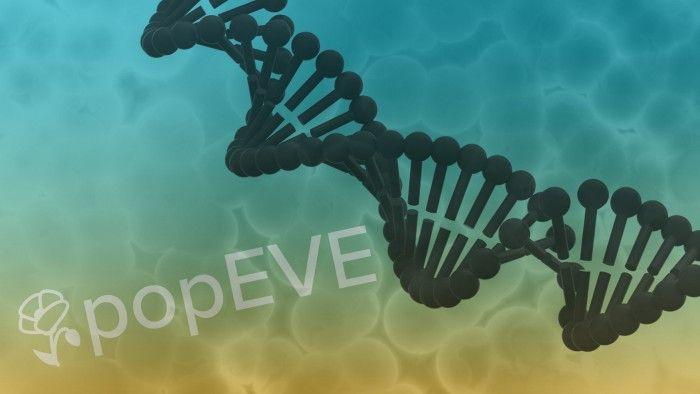Cedars-Sinai Develops DYNA: An AI Model for Precise Gene Variant Disease Prediction
2 Sources
2 Sources
[1]
New AI model predicts gene variants' effects on specific diseases
Cedars-Sinai investigators have developed a novel artificial intelligence (AI) model, named DYNA, that accurately distinguishes harmful gene variations from harmless ones, potentially enhancing physicians' ability to diagnose diseases. The new tool could pave the way for more precise personalized medicine and targeted therapies. In an article published in the journal Nature Machine Intelligence, the team demonstrated that DYNA outperforms existing AI models in accurately predicting which changes in DNA, commonly called mutations, are linked to specific cardiovascular conditions and other disorders. "In recent years, AI has vastly expanded our ability to detect enormous numbers of genetic variants in ever-larger populations," said Huixin Zhan, Ph.D., a contributing author of the study from the Department of Computational Biomedicine at Cedars-Sinai. "But up to half of these variants are of uncertain significance, meaning we don't know if they cause a disease and, if so, which one. The DYNA model overcomes many of these challenges." Current AI models prove to be effective in distinguishing which gene variants, in general, are more likely to negatively affect the structure or function of a protein, which can lead to disease, Zhan said. But these models lack the ability to connect a specific variant to a specific disease, which limits their usefulness in diagnosing or treating patients; DYNA can accurately perform this task. To develop DYNA, the investigators applied a type of AI known as a Siamese neural network to fine-tune two existing AI models. They used these modified models to predict the probability that specific gene variants are connected to cardiomyopathy (enlargement, stiffening or weakening of the heart muscle) and arrhythmia (irregular heartbeat). The investigators then compared the DYNA findings to data in an authoritative public database, known as ClinVar, that archives reports of genetic variations classified for diseases. The data showed that DYNA correctly paired the genetic variants with the given diseases. "For researchers, DYNA provides a flexible framework to study various genetic diseases," said Jason Moore, Ph.D., another contributing author of the study and chair of the Department of Computational Biomedicine at Cedars-Sinai. "Future developments could include using DYNA to offer health care professionals advanced tools for tailoring diagnoses and treatments to each individual's genetic profile."
[2]
New AI Model Predicts Gene Variants' Effects on Specific Diseases | Newswise
Cedars-Sinai investigators have developed DYNA, an AI model that accurately identifies harmful genetic mutations for precise diagnoses and treatments. LOS ANGELES (March 24, 2025) -- Cedars-Sinai investigators have developed a novel artificial intelligence (AI) model, named DYNA, that accurately distinguishes harmful gene variations from harmless ones, potentially enhancing physicians' ability to diagnose diseases. The new tool could pave the way for more precise personalized medicine and targeted therapies. Published in the peer-reviewed journal Nature Machine Intelligence, the team demonstrated that DYNA outperforms existing AI models in accurately predicting which changes in DNA, commonly called mutations, are linked to specific cardiovascular conditions and other disorders. "In recent years, AI has vastly expanded our ability to detect enormous numbers of genetic variants in ever-larger populations," said Huixin Zhan, PhD, a contributing author of the study from the Department of Computational Biomedicine at Cedars-Sinai. "But up to half of these variants are of uncertain significance, meaning we don't know if they cause a disease and, if so, which one. The DYNA model overcomes many of these challenges." Current AI models prove to be effective in distinguishing which gene variants, in general, are more likely to negatively affect the structure or function of a protein, which can lead to disease, Zhan said. But these models lack the ability to connect a specific variant to a specific disease, which limits their usefulness in diagnosing or treating patients; DYNA can accurately perform this task. To develop DYNA, the investigators applied a type of AI known as a Siamese neural network to fine-tune two existing AI models. They used these modified models to predict the probability that specific gene variants are connected to cardiomyopathy (enlargement, stiffening or weakening of the heart muscle) and arrhythmia (irregular heartbeat). The investigators then compared the DYNA findings to data in an authoritative public database, known as ClinVar, that archives reports of genetic variations classified for diseases. The data showed that DYNA correctly paired the genetic variants with the given diseases. "For researchers, DYNA provides a flexible framework to study various genetic diseases," said Jason Moore, PhD, another contributing author of the study and chair of the Department of Computational Biomedicine at Cedars-Sinai. "Future developments could include using DYNA to offer healthcare professionals advanced tools for tailoring diagnoses and treatments to each individual's genetic profile." The DYNA code is available at GitHub. The corresponding author of the study is Zijun Zhang, PhD, formerly of Cedars-Sinai. This work was funded by National Institutes of Health Grants U01 AG066833 (J.H.M.) and R01 LM010098 (J.H.M.) Follow Cedars-Sinai Academic Medicine on LinkedIn for more on the latest basic science and clinical research from Cedars-Sinai
Share
Share
Copy Link
Researchers at Cedars-Sinai have created DYNA, an advanced AI model that accurately links specific gene variants to diseases, potentially revolutionizing personalized medicine and targeted therapies.

Breakthrough in AI-Driven Genetic Analysis
Researchers at Cedars-Sinai have developed a groundbreaking artificial intelligence (AI) model named DYNA, which promises to revolutionize the field of genetic analysis and personalized medicine. This innovative tool accurately distinguishes harmful gene variations from harmless ones, potentially enhancing physicians' ability to diagnose diseases and develop targeted therapies
1
.DYNA's Unique Capabilities
DYNA outperforms existing AI models in its ability to predict which DNA changes, or mutations, are linked to specific cardiovascular conditions and other disorders. While current AI models can identify gene variants that are likely to affect protein structure or function, DYNA goes a step further by connecting specific variants to specific diseases
2
.Dr. Huixin Zhan, a contributing author from the Department of Computational Biomedicine at Cedars-Sinai, explains: "In recent years, AI has vastly expanded our ability to detect enormous numbers of genetic variants in ever-larger populations. But up to half of these variants are of uncertain significance, meaning we don't know if they cause a disease and, if so, which one. The DYNA model overcomes many of these challenges."
1
Development and Validation of DYNA
The research team applied a Siamese neural network, a type of AI, to fine-tune two existing AI models. This approach allowed DYNA to predict the probability of specific gene variants being connected to conditions such as cardiomyopathy and arrhythmia
1
2
.To validate DYNA's accuracy, the investigators compared its findings to data from ClinVar, an authoritative public database that archives reports of genetic variations classified for diseases. The results showed that DYNA correctly paired genetic variants with their associated diseases
2
.Related Stories
Implications for Research and Healthcare
Dr. Jason Moore, chair of the Department of Computational Biomedicine at Cedars-Sinai and another contributing author, highlights the potential impact of DYNA: "For researchers, DYNA provides a flexible framework to study various genetic diseases. Future developments could include using DYNA to offer healthcare professionals advanced tools for tailoring diagnoses and treatments to each individual's genetic profile."
1
The development of DYNA represents a significant step towards more precise personalized medicine. By accurately identifying harmful genetic mutations, this AI model could enhance diagnostic capabilities and lead to more targeted treatment strategies
2
.Accessibility and Future Directions
In a move that could accelerate further research and development in this field, the DYNA code has been made available on GitHub. This open-source approach allows other researchers and developers to build upon and potentially improve the model
2
.The study, published in the peer-reviewed journal Nature Machine Intelligence, was funded by National Institutes of Health Grants. As AI continues to advance in the field of genetics and personalized medicine, tools like DYNA may play a crucial role in shaping the future of healthcare and genetic research
2
.References
Summarized by
Navi
[1]
Related Stories
Recent Highlights
1
ByteDance's Seedance 2.0 AI video generator triggers copyright infringement battle with Hollywood
Policy and Regulation

2
Demis Hassabis predicts AGI in 5-8 years, sees new golden era transforming medicine and science
Technology

3
Nvidia and Meta forge massive chip deal as computing power demands reshape AI infrastructure
Technology








